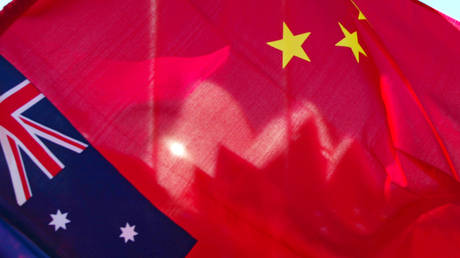
Australia has charged the first person under its new foreign interference law. The suspect, connected with China-linked organizations, stands accused of working for foreign intelligence and could face up to 10 years in jail.
The 65-year-old Melbourne resident, identified as Duong Di Sanh, was charged with “preparing for a foreign interference offence”, the Australian Federal Police (AFP) said in a statement on Thursday.
Duong is the deputy chairman of the Museum of Chinese Australian History in Melbourne, as well as the President of the Oceania Federation of Chinese Organizations from Vietnam, Cambodia and Laos. In June this year, the organization donated $37,450 to the Royal Melbourne Hospital to help with coronavirus research and preparation.
The high-profile charges against Mr Duong were brought after a year-long investigation by the Counter Foreign Interference (CFI) Taskforce, led by the AFP and Australian Security Intelligence Organisation (ASIO).
“Foreign interference is contrary to Australia’s national interest, it goes to the heart of our democracy,” AFP Deputy Commissioner Ian McCartney said. “It is corrupting and deceptive and goes beyond routine diplomatic influence practiced by governments.”
The police said Duong is believed to have a relationship with an unspecified foreign intelligence agency, yet his work was disrupted “at an early stage” and no actual harm has been done.
According to Australia’s new Espionage and Foreign Interference law, hastily adopted back in 2018, even an attempt of “foreign interference” can land the individual behind bars for up to 10 years.
Australian officials have repeatedly warned of the ever-increasing threat of foreign meddling lately. According to a recent report by the ASIO, “almost every sector of Australian society is a potential target of foreign interference, and the threat manifests itself in different but equally unacceptable ways.”
China has been the prime target for Australia’s allegations of foreign meddling for a few years, with Canberra repeatedly accusing Beijing of trying to influence its domestic affairs – an accusation that China has consistently denied.
The deteriorating relationship has resulted in multiple hostile actions from both sides. Fears of foreign interference prompted Australia to ban China’s Huawei and ZTE tech giants from the country’s 5G rollout back in 2018. Beijing has accused Australian authorities of “harassing” its journalists and scholars in the country under the pretext of battling suspected ‘interference’, as some had their homes raided while others had their visas revoked.
Australian media has experienced similar action in China. In September, two reporters working for Australian media fled the country “for their safety” after being questioned by Chinese authorities in connection with the case of Cheng Lei, an Australian China-based news anchor who worked for English-language channel CGTN. Cheng was detained in August and remains in custody over suspected activities believed to be endangering China’s national security.
Think your friends would be interested? Share this story!




